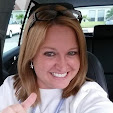Life. Fragile. One shot.
So here's what's been on my mind lately.
When I first started nursing, I thought I was going to save the world.
CPR. ALS. Codes. Adrenaline.
I slowly become less scared of people who came onto my floor mid-heart attack.
I learned to administer morphine. Adjust IV fluids. Interpret EKGs and telemetry monitors.
How to prep them for stents or open-heart procedures.
I slowly became less scared of codes - especially with my team of awesome nurses back in Mississippi. We worked so well together that we could just look at each other and know what each other was thinking. And the doctors...my first code consisted of our ER doctor telling me, "The only way you're going to learn is to get on up there!" He coached me through the chest compressions with patience and understanding.
I loved it. Loved loved loved my heart patients.
But roughly six months ago I decided to switch specialties.
A specialty that's usually met with a sad face and an "oh, how hard/sad/awful" response.
I'm a Hospice nurse.
I also like to think of it as being a geriatric and end-of-life care specialist.
Not everyone can do it.
Not everyone can face death every day.
Not everyone can come to terms with the fact that death doesn't mean a medical failure.
What do I do as a hospice RN?
- As a Case Manager, I manage medications, diets, wound care, therapy, equipment, appointments, tests, caregivers and CNA's for my patients. I oversee every single aspect of their care. I work closely with our social workers and chaplains. We are a team, and it's a fabulous one.
- I get to be a support to families. I get to watch the weight lift off their shoulders when I explain to them the disease process and what signs and symptoms to watch for - things that people in the hospital were too nervous to talk about.
- I get to assess and care for patients who are critical - without the support of an on-site team. My hospital is in the trunk of my car...that's where I carry all of my supplies, my syringes, my wound care bandages, my catheters, my oxygen tubing. Being a road RN means you better make sure you're assessment skills are 110% - because it's you and you alone making the call on what you see when you walk into that house.
- I have to prove myself as a competent and knowledgeable nurse to our hospice physicians. Like I mentioned above, I have to know my stuff forwards and backwards in order to call the doctors for new orders - whether it be to transfer a patient to the Hospice House for inpatient care, start Crisis Care inside the home, or calculate pill vs. liquid vs. injectable narcotics if my patients can't swallow anymore. If your doctor trusts you, it goes a long way when you call them sixteen times a day on your symptomatic patient.
- Speaking of, just because a patient is on hospice doesn't mean we just sit back and wait for them to die. If they start to have shortness of breath, we're in there with oxygen, nebs, breathing treatments, morphine, etc. so they're not struggling. If their pain is out of control, despite the pain meds their on, we're in there adjusting dosages or adding meds for breakthrough until we can get them comfortable. A lot of my patients come onto our service completely alert and oriented, so many of my visits consist of education and keeping them stable as long as their bodies allow.
- I get to be present with my families in their most raw and emotional moments. I'm the one they rely on to pronounce the time of death of their loved one. I'm the one comforting the family, bathing the body, calling the funeral home, getting all the paperwork done...all the family has to do is, well, whatever they want. One family of mine made calls to other family members to inform them of the death, then they sat back, broke out the photo albums and bottles of wine. They were able to reminisce and talk about their loved one without the stress of having to take care of arrangements and paperwork and waiting for the funeral home to show up - that's what I was there to do.
- People are people. People are not a diagnosis. I refuse to go into someone's house and treat them like a cancer patient. An ALS patient. An Alzheimer's patient. By coming onto hospice, they're telling me they're done with treatments and chemo and millions of pills - they just want to feel like a human again in their own house. So you know what? We do that. We sit and talk and laugh (Yes! We laugh!) and just try to live as normal as the disease process allows. Yes, there are going to be days that aren't as pleasant. There are days you have to have your game face on and get down to business. But you also look your patient in the eyes, don't talk over them, don't talk down to them. You smile, you talk about grandkids and pets and favorite vacation places. It's all about creating relationships and trust.

Hospice just reminds me that we're all headed somewhere. Life is fragile, and can end in so many different ways. We don't get to choose, but we can decide how we respond to those situations. I've seen every emotion on my patients and families faces - anger, denial, peace, acceptance, rage, combativeness, love, grief. Hospice is definitely emotional - maybe why I've turned to this blog tonight to get out some of my feelings.
Thanks for letting me get it out.
Today I love: Being able to walk. Being able to eat. Being able to hug my husband and pet my dogs. Life. Living. Purpose.






No comments:
Post a Comment